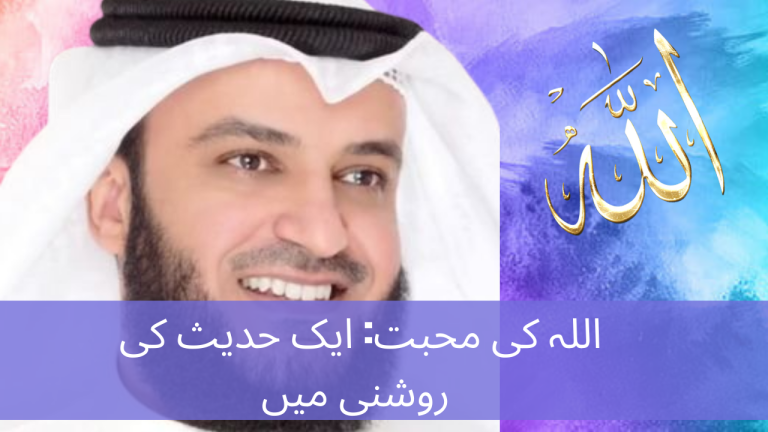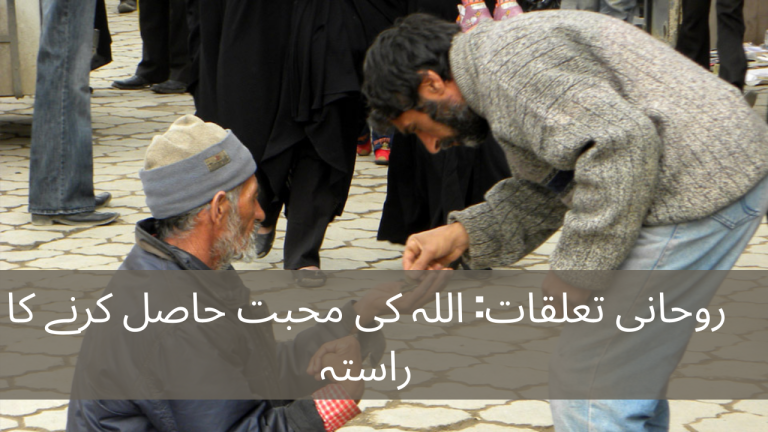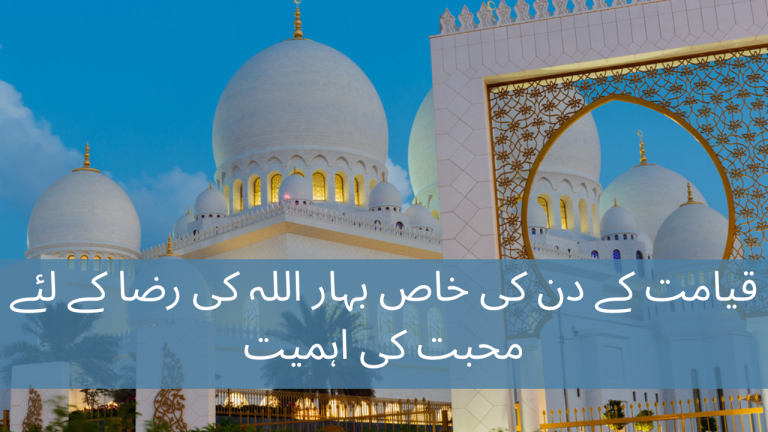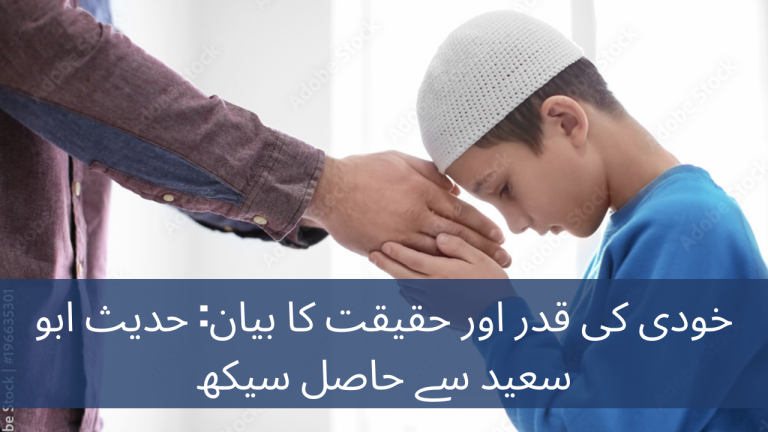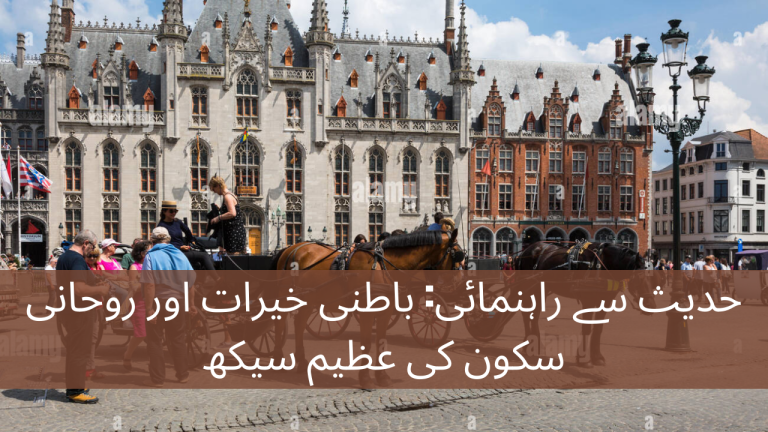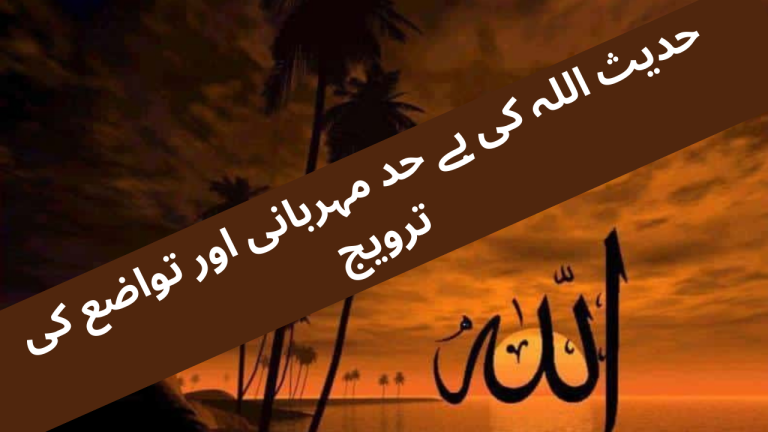Allah k Ramat Ka Hadees Jo K Ghazab Par Ghalib Hay

Allah k Ramat Ka Hadees Jo K Ghazab Par Ghalib Hay
رواه مسلم (وكذلك البخاري والنسائي وابن ماجه)
About This Hadees In Arabi ,English And Urdu
هذا الحديث هو حديث شريف من سنن الإمام البخاري، وهو أحد أهم مصادر الحديث في الإسلام. الحديث الذي ذكرته هو عبارة عن قول للنبي محمد صلى الله عليه وسلم عن أبي هريرة، ويقول فيه:
“لما قضى الله الخلق، كتب في كتابه على نفسه، فهو موضوع عنده: إن رحمتي تغلب غضبي.”
يتحدث هذا الحديث عن الصفات الإلهية والمكرمات الإلهية، حيث يشير إلى أن رحمة الله تعالى تفوق غضبه. وهذا يعني أن الله غالباً ما يتحلى بالرحمة والعفو والمغفرة تجاه خلقه، وأن غضبه يكون نادرًا ومحدودًا. إن هذا الحديث يسلط الضوء على الجانب الرحيم والمتسامح من طبيعة الله.
ويجب أن نفهم هذا الحديث في السياق الشرعي الصحيح وعلى ضوء باقي الأحاديث والأدلة الإسلامية الأخرى، حيث تتوازن صفات الله بالعدالة والرحمة والغضب حسب حكمته ومشيئته.
“When Allah completed the creation, He wrote in His Book which is with Him on His Throne, ‘My Mercy overpowers My Anger.'”
This Hadith speaks about the divine attributes and qualities, indicating that Allah’s mercy predominates over His anger. It means that Allah most often exhibits qualities of mercy, forgiveness, and compassion towards His creation, and His anger is rare and limited. This Hadith highlights the merciful and forgiving nature of Allah.
It is important to understand this Hadith in the correct Islamic context and in light of other Hadiths and Islamic evidence, where Allah’s attributes of justice, mercy, and anger are balanced according to His wisdom and will.
یہ حدیث امام البخاری کی حدیثوں کا ایک عزیز مقام رکھتی ہے، جو اسلام میں حدیث کی اہم ترین مآخذوں میں سے ایک ہے۔ آپ نے جو حدیث ذکر کی ہے وہ ابو ہریرہ کی روایت کی گئی ایک قول ہے جس میں پیغمبر محمد صلی اللہ علیہ وآلہ وسلم کا اظہار ہے:
“جب اللہ نے خلائق کی تخلیق مکمل کی، تو اپنی کتاب پر جو کہ اس کے عرش پر ہے، لکھ دیا: ‘میری رحمت میرے غضب کو پر کرتی ہے۔'”
یہ حدیث اللہ کی صفات اور خصوصیات کے بارے میں بات کرتی ہے، جس میں یہ ظاہر کیا جاتا ہے کہ اللہ کی رحمت ان کے غضب پر غالب آتی ہے۔ اس کا مطلب ہے کہ اللہ تعالی اکثر مواقع پر اپنے بنائے ہوئے کائنات پر رحمت، معافی، اور ہمدردی کی صفات ظاہر کرتے ہیں، اور ان کا غضب کم اور محدود ہوتا ہے۔ یہ حدیث اللہ کی مہربانی اور معاف کرنے والی طبیعت کو اجتاہ کرتی ہے۔
اس حدیث کو اسلامی موقع و سیاق میں درست تشہیر دینا اور دوسری حدیثوں اور اسلامی دلائل کی روشنی میں سمجھنا اہم ہے، جہاں اللہ کی صفات ان کی حکمت اور مرضی کے مطابق انصاف، رحمت، اور غضب کا توازن رکھا جاتا ہے۔
Benefits Of This Hadees
The Hadith that mentions Allah’s Mercy overpowering His anger has several important benefits and lessons for Muslims:
- Understanding Allah’s Mercy: This Hadith highlights the boundless and overwhelming mercy of Allah. It reminds Muslims that Allah’s default disposition is one of mercy and compassion toward His creation. This understanding can provide solace and hope to individuals, knowing that Allah is always ready to forgive and be compassionate.
- Encouragement for Repentance: Knowing that Allah’s mercy is greater than His anger can encourage people to turn to Him in repentance and seek forgiveness for their sins. It reinforces the idea that Allah is willing to forgive those who sincerely seek His pardon.
- A Balanced View of Allah: While emphasizing Allah’s mercy, this Hadith also acknowledges the existence of Allah’s anger, albeit as a lesser attribute. This balance reminds believers of the importance of following His guidance, avoiding sinful actions, and striving to lead righteous lives to avoid His displeasure.
- Strengthening Trust and Reliance on Allah: Understanding Allah’s boundless mercy can strengthen the trust and reliance (tawakkul) that Muslims have in Allah. Believers can take comfort in the belief that Allah’s mercy can overcome any difficulties or challenges they face.
- Encouraging Compassion and Forgiveness: Muslims are encouraged to emulate Allah’s qualities of mercy and forgiveness in their own lives. They are reminded to be compassionate and forgiving toward others, as Allah’s mercy sets an example for how believers should treat fellow human beings.
- Hope and Positivity: This Hadith instills hope and positivity in the hearts of believers. No matter how great one’s sins may be, Allah’s mercy is always greater. This belief can prevent despair and inspire individuals to strive for improvement.
- Resolving Conflicts: The concept of Allah’s mercy can be invoked to promote reconciliation and forgiveness in interpersonal conflicts. When Muslims remember Allah’s abundant mercy, they may find it easier to forgive those who have wronged them.
- Encouraging Gratitude: Understanding the extent of Allah’s mercy can lead to increased gratitude and thankfulness among believers. Recognizing Allah’s blessings and His willingness to forgive can motivate individuals to express their gratitude through acts of worship and obedience.
In summary, the Hadith about Allah’s Mercy overpowering His anger serves as a reminder of the fundamental Islamic belief in Allah’s attributes of mercy and forgiveness. It offers guidance on how Muslims should approach their relationship with Allah, seek forgiveness, and interact with others in a compassionate and forgiving manner.
Conclusion
In conclusion, the Hadith that discusses Allah’s Mercy overpowering His anger carries significant benefits and lessons for Muslims. It underscores the overarching importance of Allah’s boundless mercy, offering hope, encouragement for repentance, and a balanced perspective on Allah’s attributes.
This Hadith encourages believers to trust and rely on Allah, emulate His qualities of compassion and forgiveness, and resolve conflicts with forgiveness and reconciliation. It also promotes gratitude for Allah’s blessings and inspires individuals to lead righteous lives. Ultimately, this Hadith reinforces the core Islamic belief that Allah’s mercy is the predominant and prevailing attribute, providing solace and guidance for Muslims in their spiritual journey.
